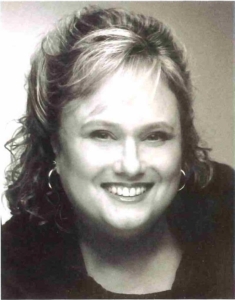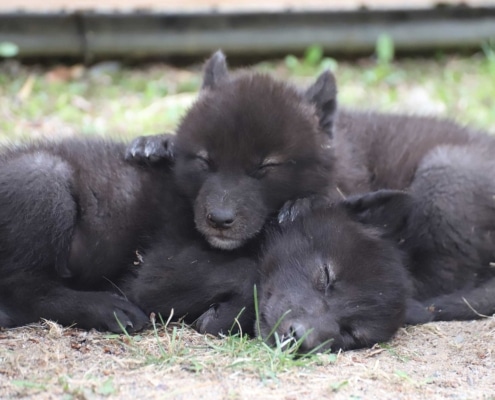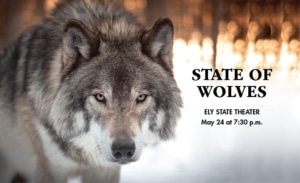 In one of the largest donations made in support of wolves, Eileen Sutz, a native Chicagoan, has bequeathed her estate to three organizations dedicated to educating the public about wolves in North America. The recipients of her gift, Yellowstone Forever, the International Wolf Center, and Wolf Park will share in the funds equally. Each organization has plans to expand their wolf education programs and research with the support and vision of Ms.Sutz behind them.
In one of the largest donations made in support of wolves, Eileen Sutz, a native Chicagoan, has bequeathed her estate to three organizations dedicated to educating the public about wolves in North America. The recipients of her gift, Yellowstone Forever, the International Wolf Center, and Wolf Park will share in the funds equally. Each organization has plans to expand their wolf education programs and research with the support and vision of Ms.Sutz behind them.
Eileen Sutz, a lifelong wolf advocate, had strong feelings about protecting and supporting wolves. Believing they were misunderstood and unjustly maligned, she saw the importance of educating people about wolves and protecting the wolf population.
Ms. Sutz’s connection to wolves began in her youth. As a ballet dancer, model, and free spirit ahead of her time, she overcame many obstacles in pursuit of her dreams. She often experienced being misunderstood and constrained by the confines of conventional life, and found strength and resonance with wolves. She admired and found inspiration in their independence, loyalty, and resilience as well as their beauty and gracefulness.
Over the years, Ms. Sutz’s successful business career allowed her to pursue many of her passions including founding a theater company, supporting animal rescue organizations, and traveling the world to follow the Rolling Stones on tour for over 10 years, but her most enduring and passionate interest remained the welfare of wolves.
Physical ailments led to Ms. Sutz being homebound in her later years, and during that time she devoured news about wolves and began passionately defending them at any given opportunity. “It kept her fulfilled to keep working to support wolves,” says longtime friend Klaus Boettcher. “At the same time, it was devastating and depressing to see what was happening to them. She really wanted to support changing the narrative about wolves.”
Following Ms. Sutz’s unexpected passing from a stroke in February 2022, the search began to find organizations that fulfilled her vision, specifically those that supported wolf education and research and weren’t laden with bureaucracy. The three selected organizations have spent the past several months determining how they’ll expand their efforts thanks to the gift from Ms. Sutz. New studies about wolves are planned, new initiatives to train volunteers are in the works, and a new wolf education center is being considered, among other initiatives.
“Eileen would be so happy to know that she was able to make a difference in the lives of wolves, now and in the years to come,” Boettcher said. “Her legacy will live on.”
###
About the three recipients of the
Eileen Sutz Estate donation on behalf of wolves
Below are summaries of the three organizations that will share in the Eileen Sutz Estate, and their plans for the donations they will receive:
Yellowstone Forever
Yellowstone Forever is the official nonprofit partner of Yellowstone National Park. It helps fund priority projects in Yellowstone to protect, preserve, and enhance the park through education and philanthropy.
“A gift of this magnitude is truly transformational and will allow the Yellowstone Wolf Project to continue its over 25-year groundbreaking research to better understand and coexist with wolves,” said Lisa Diekmann, President and CEO of Yellowstone Forever.
Eileen Sutz’s estate gift will provide substantial support to Yellowstone’s Wolf Project team to continue its year-round monitoring and field research in which biologists gain data on the park’s wolf population dynamics, social behavior, ecosystem impacts, human-wolf relationships, and much more.
International Wolf Center
The International Wolf Center has sought to teach the world about wolves since it was founded in 1985 by Dr. L. David Mech. The Center welcomes 40,000 visitors a year to its interpretive center in Ely, Minnesota, and it informs the public through a busy website, quarterly magazine, virtual learning, and webinars.
The Center will use the Eileen Sutz estate funding to train new wolf educators across the world so they can spread the science about this misunderstood apex predator. “Thanks to these funds, our organization has a huge opportunity to leverage our community of followers around the world through the launching of a wolf educator training program,” Executive Director Grant Spickelmier said. “By training and equipping community wolf educators we can reach new audiences that might not otherwise hear from the International Wolf Center and simultaneously create a new set of engaged volunteers and champions for science-based wolf education. We like to think that Eileen herself would have been the first person to sign up.”
Wolf Park
Along with the celebration of their 50th anniversary in 2022, the staff, volunteers and board of Wolf Park in Battle Ground, Indiana, have reinvigorated their work to make their strategic visions a reality. Since 1972 Wolf Park’s team has worked steadfastly to provide naturalistic habitats for animals in their care, foster the creation of wildlife corridors and rewilded areas on its property to support our local ecosystems, and to offer spaces for the humans who work and learn at the facility to most effectively care for and learn from their wildlife ambassadors. Using Eileen Sutz’s gift, one of their many goals is improving buildings and exhibit areas to enhance the visitor experience and provide increased opportunities for educating about wolves and the value of their role in our environment.
Wolf Park is in the initial planning phases of a capital project that will include educational space named in honor of Sutz. “On behalf of future Wolf Park visitors of all ages, I wholeheartedly thank Eileen for thinking of the future of wild wolves and planning for how she can support their conservation for years to come,” Executive Director Karah Rawlings said. “Eileen’s legacy will have a permanent impact on the future of Wolf Park, and will allow us to continue to educate many generations about the importance of our vision to Save Wolves, Save Wilderness.”
Contacts:
Yellowstone Forever
Sam Barkley
Chief Development Officer
Phone: 406-848-2400
Email: sbarkley@yellowstone.org
Website: www.yellowstone.org
International Wolf Center
Grant Spickelmier
Executive Director
Phone: 763-233-7132
Email: grant@wolf.org
Website: www.wolf.org
Wolf Park
Karah Rawlings
Executive Director
Phone: 765-714-5291
Email: Karah@wolfpark.org
Website : www.wolfpark.org
###
 Contact: Krista Woerheide
Contact: Krista Woerheide
 In one of the largest donations made in support of wolves, Eileen Sutz, a native Chicagoan, has bequeathed her estate to three organizations dedicated to educating the public about wolves in North America. The recipients of her gift, Yellowstone Forever, the International Wolf Center, and Wolf Park will share in the funds equally. Each organization has plans to expand their wolf education programs and research with the support and vision of Ms.Sutz behind them.
In one of the largest donations made in support of wolves, Eileen Sutz, a native Chicagoan, has bequeathed her estate to three organizations dedicated to educating the public about wolves in North America. The recipients of her gift, Yellowstone Forever, the International Wolf Center, and Wolf Park will share in the funds equally. Each organization has plans to expand their wolf education programs and research with the support and vision of Ms.Sutz behind them. Special event on wolves is May 24 in Ely
Special event on wolves is May 24 in Ely